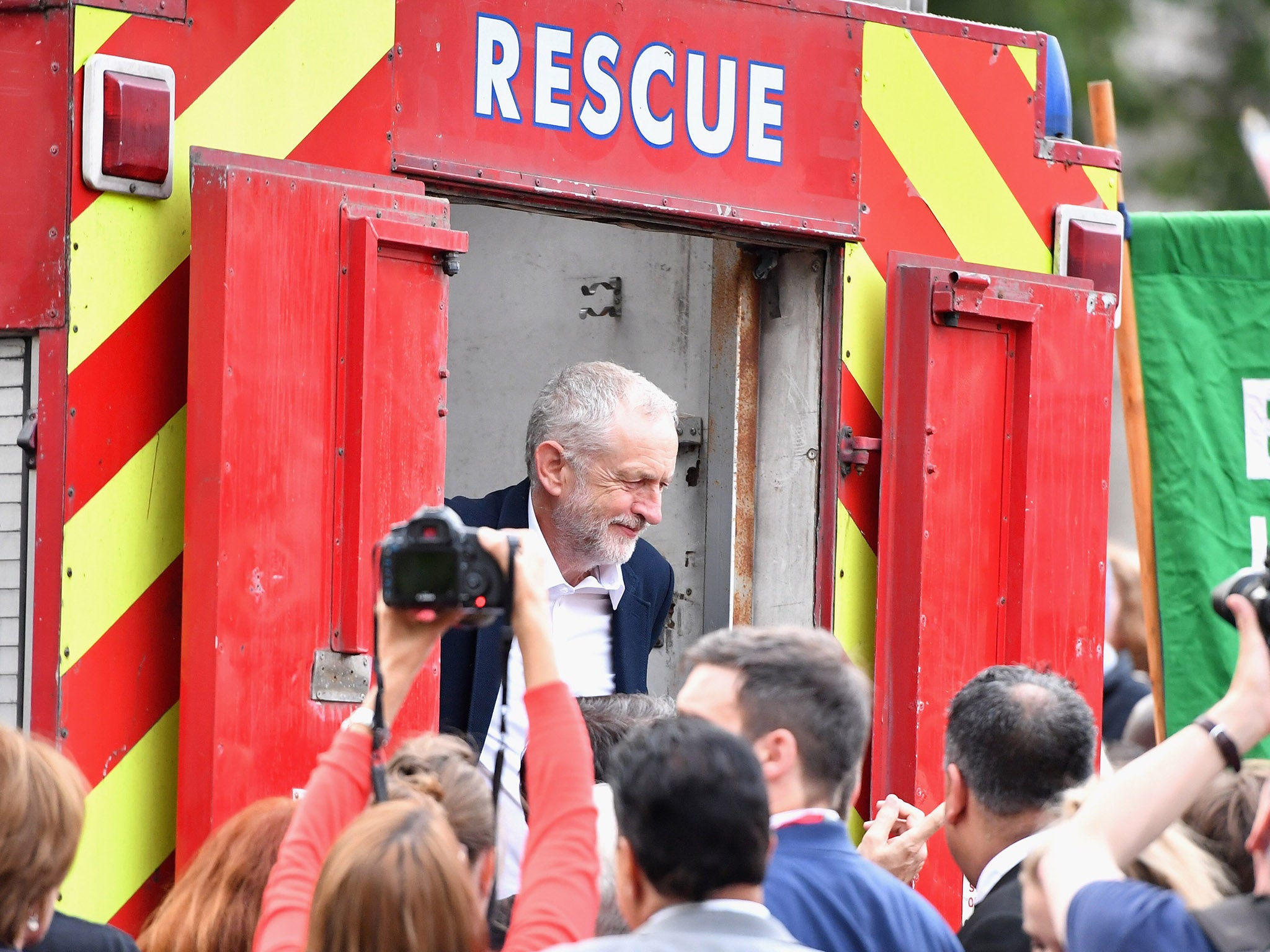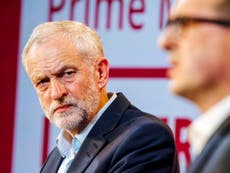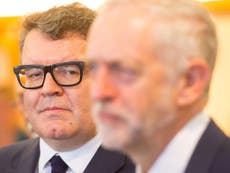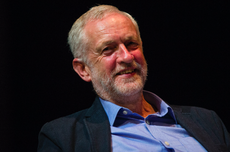Blaming Labour’s problems on the leadership coup is a ‘Corbyn fact’ – it’s only half the story
Our Chief Political Commentator tries to see inside the minds of Labour MPs


Everyone knows by now that there has been a “coup” against Jeremy Corbyn. Labour MPs, who didn’t want him as leader in the first place, have organised and schemed and briefed to get rid of him. And it looks as if they will fail.
This is, however, one of those “Corbyn facts” that is different from a normal fact. The Corbyn leadership campaign has set up a “Corbyn facts” website devoted to checking claims about its candidate that it thinks are unfair.
It says that the reason Labour is “currently not doing well in the polls” is that “the party is very publicly divided”, which is the fault of Corbyn’s opponents. “Before the recent attempt to remove Jeremy, we were neck and neck in the polls.”
The second half of that statement is misleading. Of the 75 polls between Corbyn’s election as leader and the tabling of of a motion of no confidence in him the day after the EU referendum, only 15 showed Labour within three points of the Conservatives, and only three showed Labour ahead, by one, three and three points.
The idea that Corbyn is the victim of an organised attempt to remove him is misleading too. There has been a disorganised attempt to remove him. Trying to organise even two Labour MPs to do something together is not easy. Someone who has tried told me this week that they are essentially sole traders.
Corbyn’s people think that the waves of resignations from Labour’s front bench were planned, to put pressure on him to step down voluntarily. But it was Hilary Benn’s sacking as shadow Foreign Secretary that triggered what Corbyn’s supporters call a “coup”. Of course, it takes two sides to make a civil war. Margaret Hodge, the MP for Barking, had already tabled a motion of no confidence, and Benn was sacked because he told Corbyn that he had no confidence in him.
But Labour MPs are, to change metaphors, like fish swimming about randomly until threatened, when they form shoals by instinct and move in groups. They were so shocked by the EU referendum result, and so angry about Corbyn’s patently unenthusiastic campaign to keep us in the EU, that John Cryer, the chair of the parliamentary party, felt he couldn’t stop Hodge tabling her unprecedented motion.
Two days later, several shadow ministers were so cross about Benn’s sacking that they resigned – some of them told colleagues what they were doing but mostly they acted as individuals. The reason they resigned in several groups over the following weeks was not because they were co-ordinating their efforts to put pressure on Corbyn but because each one had a different breaking-point.
Many of them tried to see Corbyn to discuss their worries and either couldn’t see him or weren’t reassured when they did – such as when Owen Smith asked if he were prepared to split the party, and John McDonnell, Corbyn’s bad cop, shrugged and said, “If that’s what it takes.”
Going further back, the cause of the conflict was the election of a party leader so out of sympathy with Labour MPs. Again, responsibility on both sides. Labour members and supporters knew what Labour MPs thought of Corbyn when they voted for him: they naively expected MPs to change the views of their lifetimes and to offer Corbyn the loyal service which he had never offered them.
Many MPs say, and I believe them, that they tried to make it work. They didn’t give it very long, but they didn’t need to: 10 months was enough. Others didn’t try: they said they couldn’t work with Corbyn and I believe them too, and I don’t blame them. Corbyn’s views have been so far outside the mainstream of the party for so long – since the pacifist George Lansbury was leader in 1935 – that no one could have expected them to.
Many of those who voted for Corbyn weren’t aware of the details of his views or of his likely level of competence. They wanted a new politics and thought that someone unfashionable enough to want to nationalise everything must be “authentic”. A lot of them have been disappointed, but they haven’t exactly been won over by Owen Smith as the alternative.
So Corbyn will probably win again next month. Friday’s Appeal Court judgment won’t make that much difference, although we can guess that the motive of the rule preventing people voting unless they have been members for six months was to reduce Corbyn’s support. (The rule was passed by the temporary anti-Corbyn majority on Labour’s National Executive after the leader himself left the meeting to attend a rally celebrating the earlier vote to put his name on the ballot paper.)
What matters is that the Corbyn flood is already abating. The ballot of the GMB union announced on Wednesday was “Noah day” for Blairites. The result, 60 per cent for Owen Smith and 40 per cent for Corbyn, was the dove returning to the ark in the evening with an olive leaf. It means that the waters are going down and that centrist Labour life is returning.
So the party is unlikely to split. If Corbyn is still there, he will be challenged again next year. He shouldn’t complain: he was always in favour of annual leadership elections.
Eventually he will go. There may be a general election next year – if you were Theresa May, “why wouldn’t you?” as Tom Watson asked – in which case Corbyn will go after that. Or there may not be an election until 2020, in which case he will probably go before then. Some time after that, Labour might win again.
It will be too late for many of today’s MPs. I cannot see into their minds, but I guess that a lot of them will leave politics whenever the next election comes. It cannot be much fun being a Labour MP. They went into politics because they believed in it (and because they wanted to be Prime Minister), but most of them would be unable to say truthfully at the next election, whenever it is, that they think Corbyn should be Prime Minister. People may have a low opinion of politicians, but dissembling for a living is no one’s idea of a good time.
Meanwhile you have to put up with being called a traitor and a red Tory. Why would you carry on, especially – given the deep strain of misogyny in online abuse – if you are a woman? The only thing that keeps them from giving up is the knowledge that this would be precisely what Corbyn and his close supporters want them to do.
This isn’t a coup, it’s a cry for help. And that is a fact.








Join our commenting forum
Join thought-provoking conversations, follow other Independent readers and see their replies